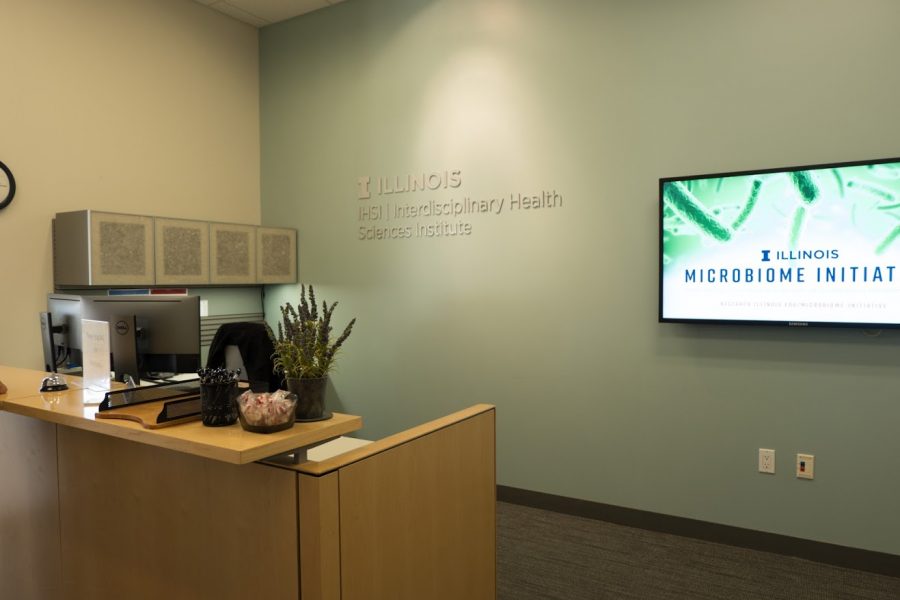Health equity program prompts students to research health disparities
The front desk of the Interdisciplinary Health Sciences Institute on Wednesday.
Mar 29, 2019
The Interdisciplinary Health Science Institute is sponsoring a 10-week summer program for students who want to pursue community-based research projects at the University.
The application closes on April 1, and up to five students will be selected to participate.
Brandi Barnes, research development manager of Health Disparities at IHSI, said the number of applicants is unknown at this point considering most students usually apply toward the due date. However, the ideal candidate should be someone interested in health equity.
“(It has to be someone) who is learning about it, who might already have a project with the community going on but might not be able to stay on campus without that … It just has to be someone interested in health equity and (someone who) wants to do good in the community,” Barnes said.
The program offers $3,000, funded by IHSI and the College of Education, to selected students. The money covers their living expenses over the summer, according to Emily Stone, another research development manager at IHSI.
Get The Daily Illini in your inbox!
The students will work with faculty members and community organizations as part of an existing collaboration. However, Barnes said they are still working on the list of community organizations.
“Right now the way that it is set up is that the student comes up with that relationship,” Barnes said. “How it is going to work in the future is we will continue to develop those relationships in the community.”
Stone listed organizations, such as a youth summer program in Champaign-Urbana, that students might work with. She said faculty, however, will not be paid because they already have their research funded.
The application requires the project to be community-based. Stone explained that community-based simply means the project idea has to be in collaboration with a community organization.
“We are looking for a project that has an existing collaboration and faculty members that have been working with organizations over time,” Stone said. “On top of that, we also want the result to benefit the community.”
Health disparities refer to differences in health outcomes that are closely linked with social, economic or environmental disadvantages, according to the application. In the community, Stone said we have differences in access to healthcare based on race, ethnicity and income, and there are also differences in the actual outcome.
Stone said the program is open to any undergraduate student from any major and aims to promote community health and research.
Barnes said they have the health equity program to get the students thinking about health equity in whatever field they are going into.
“It doesn’t just have to be a student in health, it can be a student in ACES, LAS,” Barnes said. “We are basically engaging faculties and helping them with funding opportunities and (seeing) what is going on on campus.”
Barnes said they are targeting students from different majors because health equity is not only the concern of students in health, it’s a concern of everybody.
“People might not think how housing coincide with health, but it does,” Barnes said. “It helps your health in terms of mental stability. You want to come home in a safe environment where you just feel comfortable.”
This is the first time launching the program. Stone said they are planning on expanding the program.
Barnes added that in the future, they hope they will have community organizations coming to them.
“(Community organizations) will come to us and say ‘we need help with this,’ and students will apply and we will lead them to those opportunities,” Barnes said. “We want to be year long. Right now we just have undergraduates for the summer. We hope to open it to graduate students, doctoral, postdoc students. We will ideally start it in Spring 2020 to keep it going (for the) year.”






